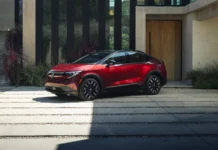SPONSORED CONTENT

Electric vehicles (EVs) are becoming increasingly popular as more people seek eco-friendly alternatives to traditional gasoline-powered cars. Selecting the right insurance for your electric vehicle is crucial to protect your investment and ensure peace of mind. This article will guide you through the important factors to consider when selecting EV insurance.
With the rise of electric vehicles, understanding the nuances of EV insurance is more important than ever. Unlike traditional cars, EVs come with unique considerations that can impact your insurance policy. From battery coverage to charging station protection, several key aspects need to be addressed.
Understanding Electric Vehicle Insurance
When it comes to insuring your electric vehicle, it’s essential to understand what sets it apart from insuring a conventional car. EVs often have higher upfront costs, which means insurance premiums can also be higher. However, many insurance companies offer discounts and incentives for eco-friendly vehicles. This can be a game-changer, since, according to Insuranceopedia, the average car payment in the US has increased by 11.5% between 2022 and 2023 for new cars.
In addition, it can be a good idea to look into specific coverages like battery protection and roadside assistance tailored for EVs. Battery protection is particularly important as the battery is one of the most expensive components of an electric vehicle. Some insurers provide specialized coverage for battery replacement or repair in case of damage or malfunction. This can save you significant costs in the long run and ensure that your EV remains functional.
Another aspect to consider is coverage for charging stations. As an EV owner, you might have a home charging station or rely on public charging infrastructure. Ensuring that your policy covers any damage or theft related to these stations can add an extra layer of security.
Factors Affecting EV Insurance Premiums
Several factors influence the cost of insuring an electric vehicle. One major factor is the make and model of your EV, as some models are more expensive to repair or replace than others. Additionally, your driving history and location also play a role in determining your premium rates. It’s crucial to shop around and compare quotes from multiple insurers to find the best deal.
In this section, we explore how driving history impacts premiums. Insurance companies consider your past driving record to assess risk levels; a clean record can lead to lower premiums, while accidents or traffic violations might increase costs.
Your location is another significant factor. Urban areas with higher traffic density typically see higher insurance rates due to increased risk of accidents and theft. Conversely, living in a rural area might result in lower premiums.
Additional Coverage Options for EV Owners
Besides standard coverage, there are additional options specifically tailored for electric vehicle owners. These include coverage for charging cables and adapters, which are essential components for maintaining your vehicle’s functionality. In case these items are damaged or stolen, having them covered by your insurance can provide peace of mind.
Some policies also offer rental reimbursement if your EV needs repairs and you require a temporary replacement vehicle. This ensures that you won’t be left stranded without transportation while waiting for repairs to be completed.
Roadside assistance is another valuable add-on for EV owners. Since electric vehicles operate differently from traditional cars, specialized roadside assistance services can provide help with issues like battery failures or finding nearby charging stations if you’re running low on power.
Tips for Choosing the Best EV Insurance
Selecting the right insurance policy involves careful consideration and research. Start by listing your priorities and identifying what coverages are most important to you as an EV owner. Compare policies from different insurers to see which ones offer the best combination of coverage options and premium rates.
Don’t hesitate to ask questions and seek clarification on any aspects you’re unsure about. Understanding the terms and conditions of your policy will help you make an informed decision and avoid any surprises down the road.
Lastly, consider seeking advice from other EV owners or joining online forums where you can share experiences and recommendations. This community insight can be invaluable in helping you choose an insurance policy that meets your specific needs.
























